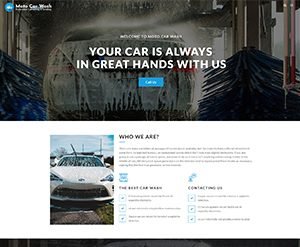TL;DR: Yes.
Accessibility on websites has always been important, and one of the key aspects of design. As technology is increasingly helping those with disabilities, it has become intrinsically linked to search engine optimisation.
More people rely on the internet in their everyday life, and more essential services are accessed online rather than over phones and in-person. So accessibility is vital for users if you are and essential service, an online shop, a blog and everything in-between.
Accessibility was previously seen as a legal requirement, or something to adhere to after the main designs – often an afterthought.
Rather than some form of obligation, accessibility is closely linked to user experience (UX), and your ultimate rankings in search engines. Nearly all search engines include guidelines on user experience and alternative options for those users with disabilities.
How does accessibility on websites impact SEO and rankings?
One of the more commonplace items of optimisations are alt-texts on images and some links. These increase relevancy of keywords on certain pages, but also help those with screen readers and other devices to navigate the page.
So by increasing the keywords on pages, you may have been helping users navigate your site anyway!
This is linked to the idea behind structured data too. Rather than putting up content and it making sense to a user, there are more specific locations and formats for data for crawlers to understand, as well as helping those who don’t use sight to navigate, or use alternate methods in general.
So if a site doesn’t make sense to a crawler and a screen reader user, it will generally rank lower, because it is harder to understand. The opposite is true too. So by helping accessibility to humans, it helps robots & crawlers, then ultimately your rankings.
There is also the more UX-based side of this, where sites which are easier to navigate and use have better engagement. Designing around users rather than squeezing as much “SEO-ness” out of a page will help increase time on site, interactions, improve bounce rates and more.
Reaching more users increases visibility, which increases clicks, and this helps with your overall ranking performance. It may be slight, but when compounded it can be the difference to get you ahead of competitors and into the top spot – particularly if everything else is equal.
So in conclusion, accessibility on websites is increasingly important and this won’t change. Rather than a legal requirement or obligation, make sure that your designs, layout, content and optimisation in general, can help all types of users.
The post Is Accessibility Important For SEO? appeared first on Koozai.com







